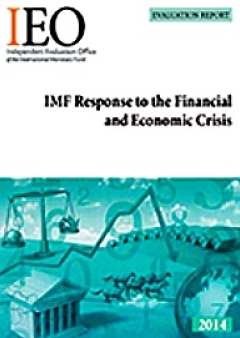
IMF Response to the Financial and Economic Crisis: An IEO Assessment
The report argues that in 2008 the IMF made a timely and influential call for a global coordinated fiscal stimulus, but its endorsement in 2010–11 of a shift to fiscal consolidation in some of the largest advanced economies was premature as economic recovery was not yet firmly established. At the same time, the evaluation recognizes that the IMF showed flexibility in reconsidering its fiscal policy advice when the growth outlook worsened.
The evaluation found that the IMF had strengthened its ability to warn about mounting vulnerabilities since 2008. Nonetheless, it noted that many country authorities believed that the risk assessment framework had become too complex and had not provided clear warnings about key risks. The evaluation, therefore, recommended more prioritization, consolidation and integration of messages and reports. It also recommended greater focus of IMF financial stability assessments on the five to seven most systemically important financial centers.
To be better prepared to respond to future crises, the IMF should aim to have resources in place in advance of a need arising, relying primarily on member quotas to reduce uncertainty and to strengthen legitimacy. The report highlighted the importance of implementing the quota increase and governance reforms agreed in 2010.
In responding to the crisis, the IMF worked closely with a number or international organizations and entities. While country authorities thought that the IMF managed these interactions effectively, many were concerned about a possible erosion of the IMF's independence, whether actual or perceived. To address these concerns, the IEO recommended that the Fund develop guidelines for structuring such engagements to protect its independence, to ensure uniform treatment of member countries, and to provide for greater transparency and accountability. These guidelines should focus on core principles but should be flexible and allow for adaptation to specific circumstances.
